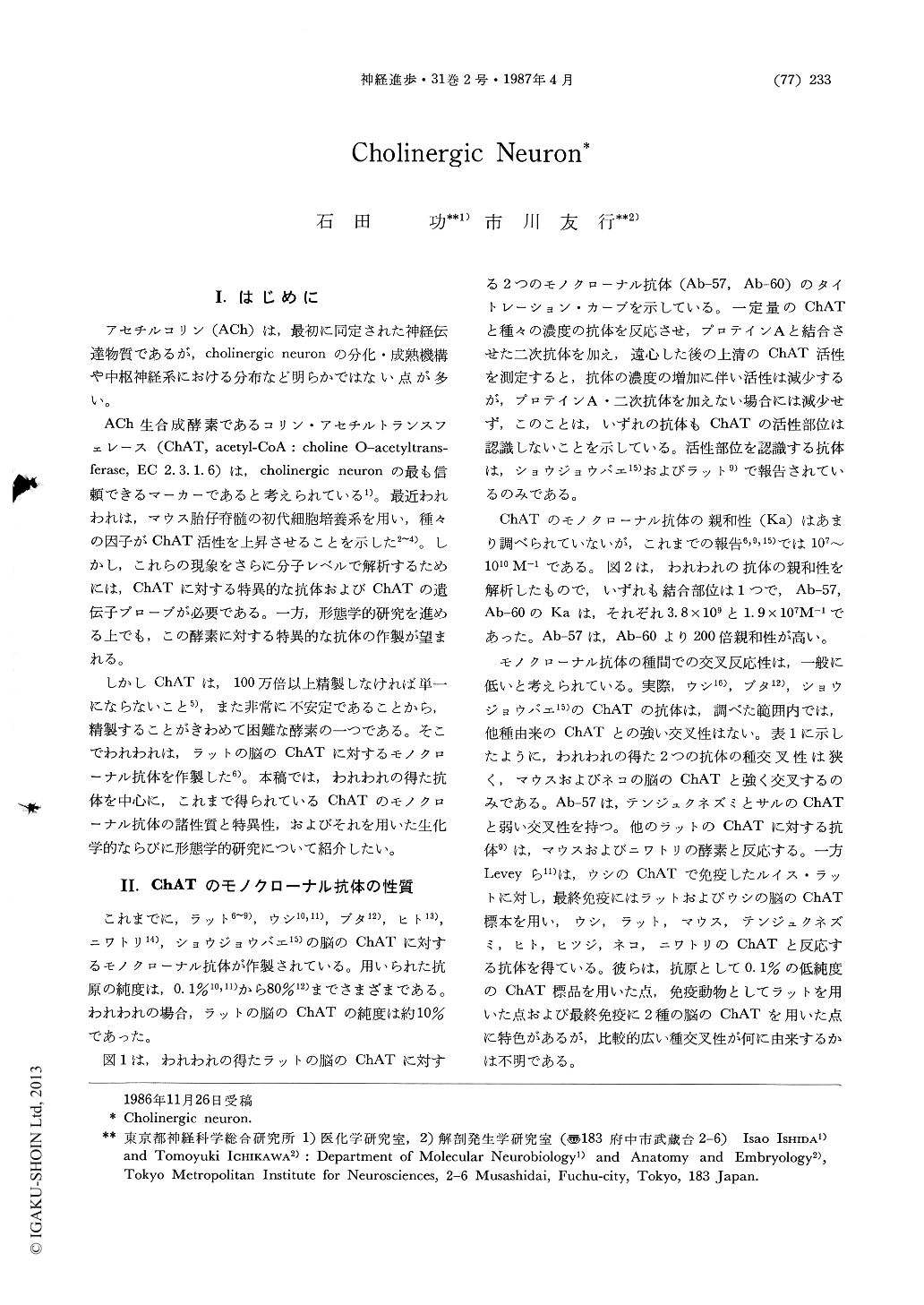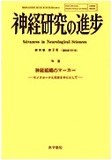Japanese
English
- 有料閲覧
- Abstract 文献概要
- 1ページ目 Look Inside
I.はじめに
アセチルコリン(ACh)は,最初に同定された神経伝達物質であるが,cholinergic neuronの分化・成熟機構や中枢神経系における分布など明らかではない点が多い。
ACh生合成酵素であるコリン・アセチルトランスフェレース(ChAT,acetyl-CoA:choline O-acetyltransferase,EC2. 3. 1. 6)は,chollnergic neuronの最も信頼できるマーカーであると考えられている1)。最近われわれは,マウス胎仔脊髄の初代細胞培養孫を用い,種々の因子がChAT活性を上昇させることを示した2〜4)。しかし,これらの現象をさらに分子レベルで解析するためには,ChATに対する特異的な抗体およびChATの遺伝子プローブが必要である。一方,形態学的研究を進める上でも,この酵素に対する特異的な抗体の作製が望まれる。
The biosynthetic enzyme for ACh, choline acetyltransferase (ChAT), is currently the most reliable marker for cholinergic neurons. A highly specific antibody to this enzyme would offer a useful method to study the biochemical regulation of cholinergic activity and to demonstrate central cholinergic pathways immunohistochemically. However, it has been difficult to purify ChAT homogeneously in order to generate a monospecific polyvalent antibody to it.An alternative method for producing the monospecific antibodies is the newly developed monoclonal antibody technology, which allows the use of a partially purified enzyme as an antigen, and several groups of investigators including us have obtained monoclonal antibodies to ChAT.
In the present paper, we described, first, several properties of the monoclonal antibodies to ChAT such as titration curve, affinity and cross-species reactivity. Second, we demonstrated the specificity of our antibody to ChAT by immunochemical and immunohistochemical studies. Third, we described several biochemical studies using monoclonal antibodies ; immunoaffinity purification of ChAT, regulatory mechanisms of the differentiation and maturation of cholinergic neurons and cloning of cDNA for mRNA encoding ChAT. Finally, we described immunohistochemical studies on the central cholinergic pathways.

Copyright © 1987, Igaku-Shoin Ltd. All rights reserved.


